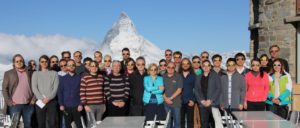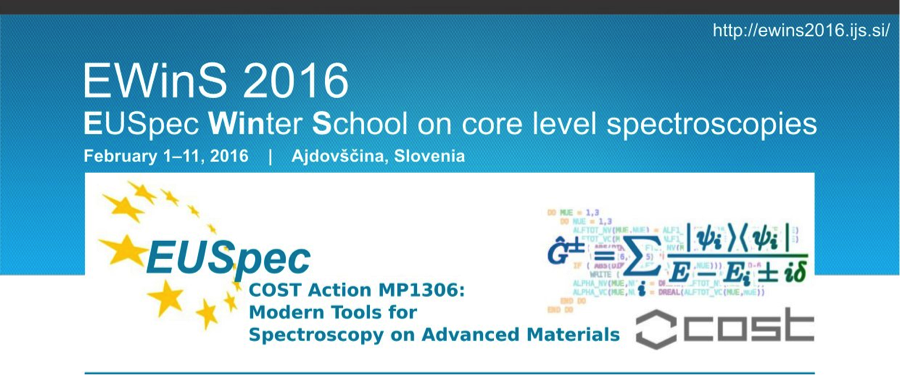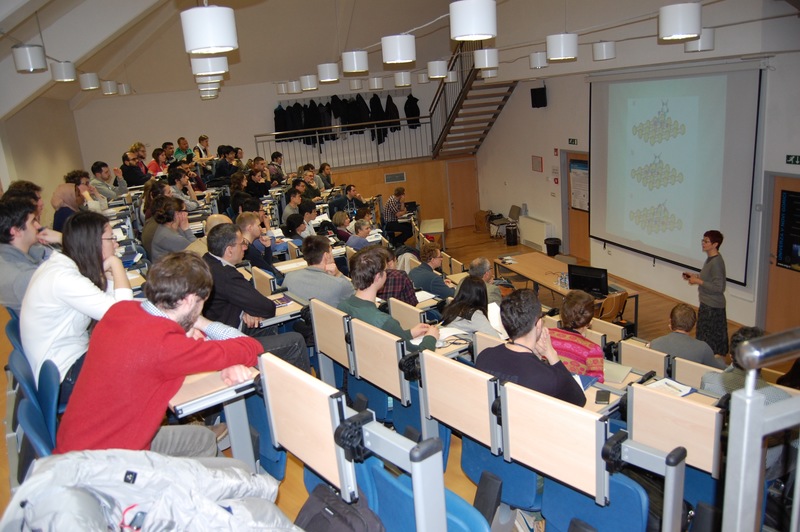The potential energy surface (PES) is a central quantity in the modelling of materials properties. Ab initio total energy methods like density-functional theory are increasingly used to probe the PES in order to determine not only the equilibrium configurations of particular systems, but also potential energy barriers for certain processes and/or attempt frequencies. The goal of the workshop was to discuss current issues and perspectives in the underlying theoretical concepts and methods, as well as corresponding applications in the fields of heterogeneous catalysis, crystal growth, or biophysics.
After successful meetings in 1994, 1999, and 2005, the workshop stayed within the interdisciplinary tradition of the PPES series and brought together scientists with different backgrounds, e.g. in condensed matter physics, materials science, computational physics, chemistry, and industry. Experts of the field of total-energy calculations, scientists who develop or enhance methods, and those who apply the information gained by these techniques had the possibility to exchange ideas and experiences.
A special focus of the PPES-IV workshop was on big-data-driven materials science, e.g. the Materials Encyclopedia and the development of Big-Data Analytics tools for materials science of the NOMAD Center of Excellence.
 Continue reading Probing Potential-Energy Surfaces (PPES IV)
Continue reading Probing Potential-Energy Surfaces (PPES IV)



